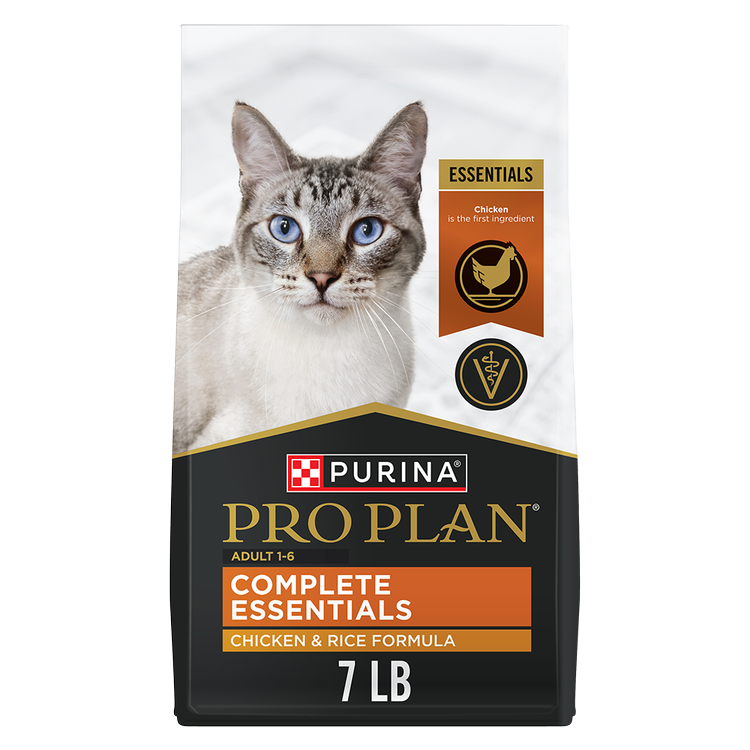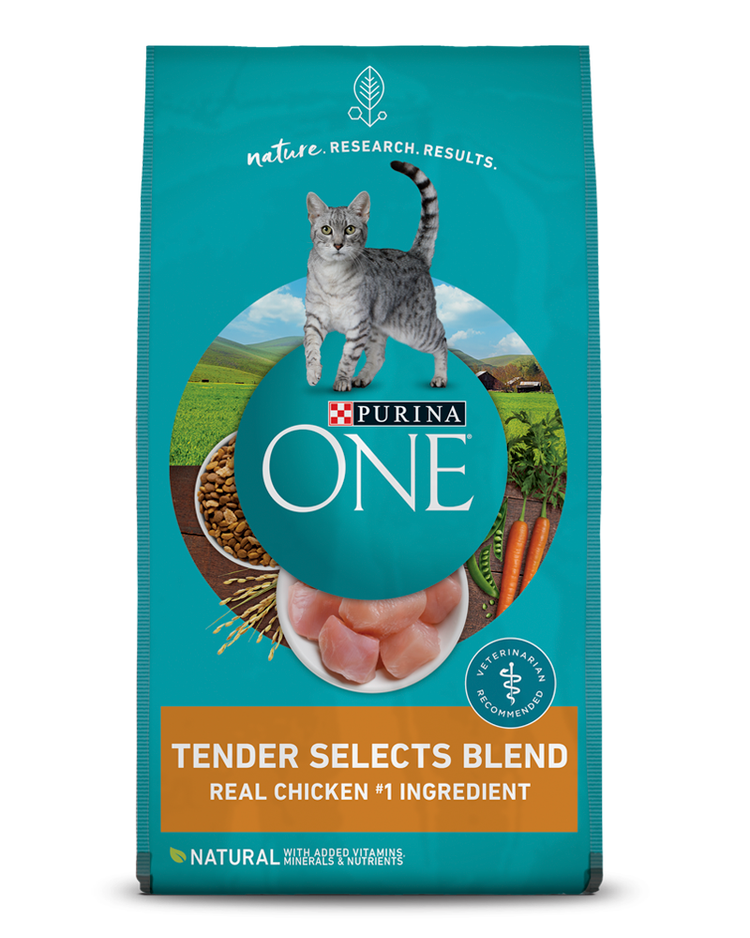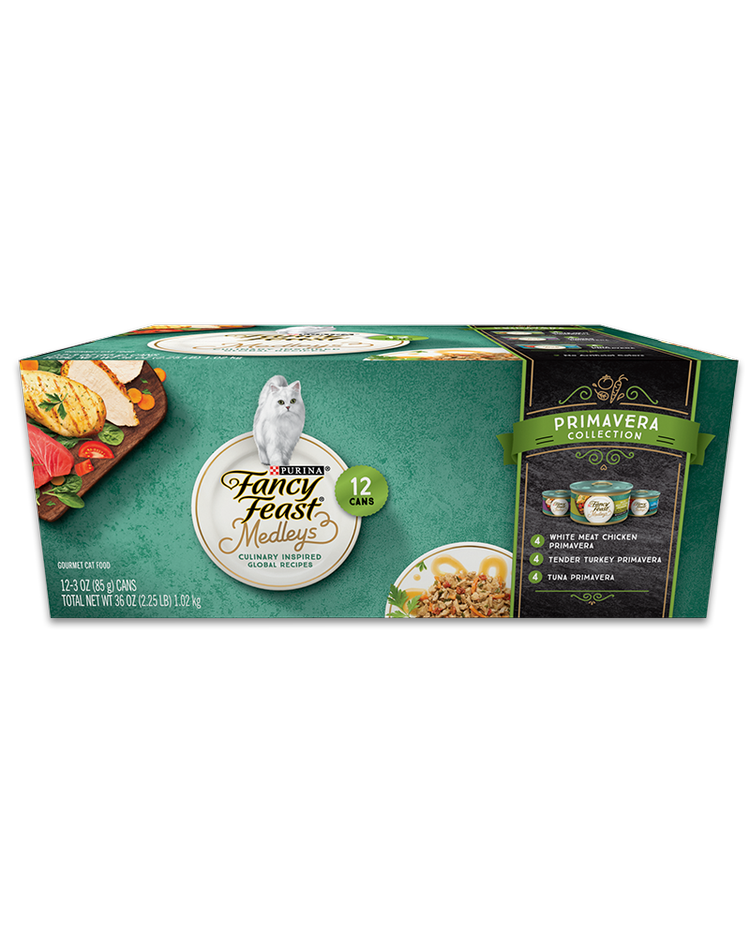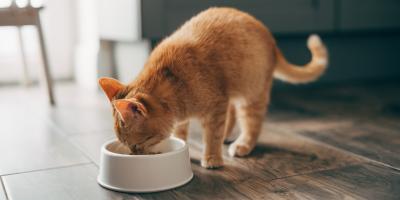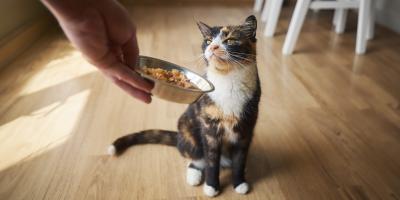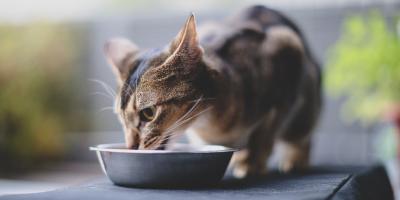Can Cats Eat Peanut Butter or Peanuts? A Guide to Safety


Perhaps you are enjoying a peanut butter and jelly sandwich. You put the plate down and suddenly your curious cat jumps up and starts licking up some peanut butter that they found on your plate. You know you have seen dogs enjoy this delicious treat, but you never thought your cat would ever be attracted to this nutty snack. You start to wonder, Can cats have peanut butter?
Is Peanut Butter Safe for Cats?
You might be wondering, Is peanut butter bad for cats? The good news is that peanut butter is usually not poisonous for cats. However, that does not mean cats should eat peanut butter, as it adds no nutritional value to their diet. This is especially true if it has life-threatening ingredients for cats, such as the artificial sweetener called xylitol.
While dogs are omnivores and can eat a variety of foods, cats are considered obligate carnivores. This means that they must consume meat proteins to meet their nutritional needs. Peanut butter does not meet this dietary need, which makes it difficult for cats to metabolize it properly. In turn, if your cat eats too much peanut butter, the excess calories in peanut butter could lead to weight gain and obesity, increasing a cat’s chances of getting diabetes and other health concerns.
It is best to avoid giving your cat peanut butter, but if you do, make sure it is a small amount and that it does not contain any concerning ingredients.
Problematic Ingredients in Peanut Butter for Cats
There are a few common ingredients to watch out for when it comes to peanut butter and how it can affect your kitty:
- Xylitol: Cats cannot have xylitol. This and other artificial sweeteners can be found in various peanut butters as well as peanut butter powders. Xylitol and artificial sweeteners are incredibly toxic for your adorable loved one. A cat could get xylitol poisoning leading to all sorts of symptoms, including vomiting, drooling, lethargy, balance issues, and even seizures. In the worst-case scenario, xylitol poisoning can turn fatal, developing into liver failure, hypoglycemia or some other life-threatening ailment. If any of these symptoms occur, contact your vet or emergency animal hospital as soon as possible.
You can check the label to see if this ingredient is in your peanut butter. Other names for xylitol include wood sugar, birch sugar and birch bark extract. - Oils and Fats: Peanuts are high in fat content and can lead to obesity in cats. Oils and peanuts may also cause many different gastrointestinal issues, such as vomiting, stomach pain, and diarrhea. If your cat eats too much peanut butter, this could take them away from eating their main diet food, creating nutritional deficiencies that can affect their overall health.
- Salt and Sugar: Salt and sugar tend to get added to many peanut butters. Excessive amounts of salt and sugar may lead to serious symptoms in cats, including vomiting, diarrhea, abdominal pain, excessive thirst, frequent urination, seizures and other severe health problems. Since sugar is a carbohydrate found in many peanut butters, excess amounts of this could create obesity, diabetes and more.
If the peanut butter has any of these dangerous ingredients or if there is any other cause for concern, seek medical support immediately by contacting your vet or your nearby animal hospital. You can also call the Pet Poison Helpline (1-800-213-6680). They will be able to provide advice and additional support.
Should You Give Your Cat Peanut Butter?
If you give your cat any peanut butter, only offer them a tiny amount either to help them get medicine down or as a tiny treat every once in a blue moon. Make sure you read the labels for any ingredients that could make your cat extremely sick. Talk to your vet to see how much the ideal amount of peanut butter to give to your adorable ball of fur. Generally, treats should not exceed 10 percent of your cat’s daily caloric intake. For pet parents who use it daily, to hide a pill, do not exceed more than 1/8 to 1/4 teaspoon of peanut butter a day. Make sure you monitor your kitty closely in case any concerning symptoms appear. If you are still unsure about giving your cat peanut butter, the best thing to do is to consult with your vet.
My Cat Ate Peanut Butter: “What Should I Do?”
If your sneaky buddy decided to get a taste of this nutty indulgence, the first thing you should do is check the label. Make sure the peanut butter does not have any potential life-threatening ingredients, such as xylitol. If it does, then contact your vet or nearby animal hospital immediately.
If you do not see any concerning ingredients, then it might be safe to just monitor your cat at home. If your cat starts to exhibit any alarming symptoms, such as vomiting, diarrhea, decreased appetite, etc. then call your vet or the Animal Poison Control Center (APCC) at (888) 426-4435) for support.
Can Cats Eat Peanuts?
Are peanuts bad for cats? Although peanuts carry less concerns due to the lack of xylitol and other troubling ingredients, it is still a high calorie treat with no added nutritional benefit. There is still a risk of your cat developing obesity, diabetes and more. The peanuts can still act as a choking hazard or cause intestinal blockage, especially if your cat swallows the peanut in its shell. Some cats might even have a peanut allergy, much like in humans. Signs of peanut allergies in your cat can include skin irritation, vomiting, diarrhea or other gastrointestinal issues. Just like with peanut butter, if you see any concerning symptoms, then call your vet, a nearby animal hospital, or the Animal Poison Control Center (APCC) at (888) 426-4435 immediately.
Healthy Snacks to Give Your Cat Instead of Peanut Butter
There are tons of healthier treat options for your fabulous feline. Below are just a few ideas for alternative treats:
- There are other human foods that are much safer for your loved one, including lean meats, fish and broccoli
- There are many different cat treats which are safe and specially formulated for cats
- There are also special holiday treats and gifts and holiday recipes you can give your cats during those magical times of the year
- There are safe edible plants that are popular with most cats, such as cat grass and catnip
- You can even treat your loved one with non-edible gifts, such as a feather wand toy, interactive treat dispenser, a catnip toy, an enriching game and other types of cat toys
Do your research and talk to your vet about which cat treat is best for your kitty.
For more expert tips on cat feeding, explore our other What Can Cats Eat articles.
Related articles

Find Your Pet’s Perfect Food
Get a personalized recommendation from Purina nutritionists with our Pet Food Finder.

